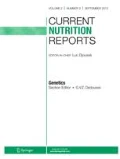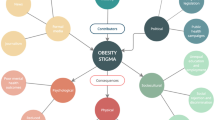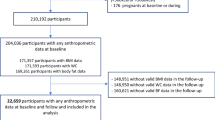Abstract
Purpose of Review
Caloric overconsumption, rather than lack of exercise, is the primary driver of overweight and obesity. We review people’s beliefs about the causes of obesity, the origins and consequences of these beliefs, and suggest possible mechanisms for corrective action.
Recent Findings
In multiple samples across the world, approximately half of the population mistakenly believes that lack of exercise is the primary cause of obesity. These misbeliefs have consequences: people who underestimate the importance of one’s diet are more likely to be overweight or obese than people who correctly believe that diet is the primary cause of obesity. Next, we discuss the systematic misrepresentation of these factors—which we call “leanwashing”—by the food and beverage industry. Corporate messaging and actions are likely contributing factors to these mistaken beliefs being so widespread, and thus corrective actions are required. These include regulation and taxation.
Summary
People’s beliefs have important medical consequences, and the origins of these beliefs and misbeliefs need to be monitored and regulated.

Similar content being viewed by others
References
Papers of particular interest, published recently, have been highlighted as: • Of importance •• Of major importance
Ng M, Fleming T, Robinson M, Thomson B, Graetz N, Margono C, et al. Global, regional, and national prevalence of overweight and obesity in children and adults during 1980-2013: a systematic analysis for the Global Burden of Disease Study 2013. Lancet. 2014;384(9945):766–81.
• Dobbs R, Sawers C, Thompson F, Manyika J, Woetzel J, Child P, McKenna S, Spatharou A. Overcoming obesity: an initial economic analysis. McKinsey Global Institute, discussion paper. 2014; November. This paper assesses the global economic impact of obesity.
Blair SN, Brodney S. Effects of physical inactivity and obesity on morbidity and mortality: current evidence and research issues. Med Sci Sports Exerc. 1999;31(Suppl. 11):S646–62.
Jakicic JM, Marcus BH, Gallagher KI, Napolitano M, Lang W. Effect of exercise duration and intensity on weight loss in overweight, sedentary women: a randomized trial. J Am Med Assoc. 2003;290(10):1323–30.
Ledikwe JH, Ello-Martin JA, Rolls BJ. Portion sizes and the obesity epidemic. J Nutr. 2005;135(4):905–9.
Ludwig DS, Friedman MI. Increasing adiposity: consequence or cause of overeating? J Am Med Assoc. 2014;311(21):2167–8.
Livingston E, Zylke JW. JAMA obesity theme issue: call for papers. J Am Med Assoc. 2012;307(9):970–1.
Malhotra A. Take off that Fitbit. Exercise alone won’t make you lose weight. Washington Post. 2015; May 15. https://www.washingtonpost.com/posteverything/wp/2015/05/15/take-off-that-fitbit-exercise-alone-wont-make-you-lose-weight/?utm_term=.45dd448c3a93
Malhotra A, Noakes T, Phinney S. It is time to bust the myth of physical inactivity and obesity: you cannot outrun a bad diet. Br J Sports Med. 2015;49(15):967–8.
Wansink B. Mindless eating: why we eat more than we think. New York: Bantam - Dell; 2006.
• Wansink B, Chandon P. Slim by design: redirecting the accidental drivers of mindless overeating. J Consum Psychol. 2014;24(3):413–31. This paper reviews environmental drivers of food consumption quantity.
•• McFerran B, Mukhopadhyay A. Lay theories of obesity predict actual body mass. Psychol Sci. 2013;24(8):1428–36. This paper demonstrates the existence and impact of laypeople’s beliefs about the primary cause of obesity.
Dweck CS. Self-theories: their role in motivation, personality, and development. Philadelphia: Taylor and Francis; 2000.
Wyer RS Jr. Social comprehension and judgment: the role of situation models, narratives, and implicit theories. Mahwah: Erlbaum; 2004.
Mukhopadhyay A. An ounce of prevention, an apple a day: effects of consumers’ lay theories on health-related behaviors. In: Batra R, Keller PA, Strecher VA, editors. Leveraging Consumer Psychology for Effective Health Communications: The Obesity Challenge. Armonk: M. E. Sharpe; 2011. p. 87–103.
Lichtman SW, Pisarska K, Berman ER, Pestone M, Dowling H, Offenbacher E, et al. Discrepancy between self-reported and actual caloric intake and exercise in obese subjects. N Engl J Med. 1992;327(27):1893–8.
Church TS, Martin CK, Thompson AM, Earnest CP, Mikus CR, Blair SN. Changes in weight, waist circumference and compensatory responses with different doses of exercise among sedentary, overweight postmenopausal women. PLoS One. 2009;4(2):e4515.
• Werle COC, Wansink B, Payne CR. Is it fun or exercise? The framing of physical activity biases subsequent snacking. Mark Lett. 2015;26(4):691–702. doi:10.1007/s11002-014-9301-6. This paper demonstrates that if exercise is labeled as “fun” versus “exercise,” people subsequently eat less unhealthy food.
•• Karnani A, McFerran B, Mukhopadhyay A. Leanwashing: a hidden factor in the obesity crisis. Calif Manag Rev. 2014;56(4):5–30. This paper reviews food marketers’ communications on the topic of obesity.
• Lustig RH. Fat chance: beating the odds against sugar, processed food, obesity, and disease. New York: Hudson Street Press; 2013. This book reviews possible links between processed foods and obesity.
Huber B. Michelle Obama’s moves. 2012. www.thenation.com/article/170485/michelles- moves#.
O'Connor A. Coca-Cola funds scientists who shift blame for obesity away from bad diets. The New York Times. 2015;August 9.
Kent M. Coca-Cola: we’ll do better. The Wall Street Journal. 2015;August 19.
• Moss M. Salt sugar fat: how the food giants hooked us. New York: Random House; 2013. This book reviews the marketing practices of food companies.
Zakaria F. Interview with Indra Nooyi. In: The Global Public Square. CNN.com. 2011. http://transcripts.cnn.com/TRANSCRIPTS/1104/17/fzgps.01.html. Accessed 16 Feb 2017.
Mangalindan JP. PepsiCo CEO: if all consumers exercised...obesity wouldn’t exist. In: Fortune 500. 2010. http://archive.fortune.com/2010/04/27/news/companies/indra_nooyi_pepsico.fortune/index.htm. Accessed 16 Feb 2017.
•• Karnani A, McFerran B, Mukhopadhyay A. The obesity crisis as market failure: an analysis of systemic causes and corrective mechanisms. J Assoc Consum Res. 2016;1(3):445–70. This paper reviews imperfections in the market for food and assesses mechanisms to address the problem of obesity.
Karnani A. Doing well by doing good—case study: ‘Fair & Lovely’ whitening cream. Strateg Manag J. 2007;28(13):1351–7.
Nestle M, Jacobson MF. Halting the obesity epidemic: a public health policy approach. Public Health Rep. 2000;115:12–24.
• Soman D. The last mile: creating economic and social value from behavioural insights. Toronto: University of Toronto Press; 2015. This book reviews the principles of behavioral economics and provides a framework for understanding how public policy can be guided by psychological principles.
Ludwig DS, Peterson KE, Gortmaker SL. Relation between consumption of sugar-sweetened drinks and childhood obesity: a prospective, observational analysis. Lancet. 2001;357(9255):505–8.
Brownell KD, Farley T, Willett WC, Popkin BM, Chaloupka FJ, Thompson JW, et al. The public health and economic benefits of taxing sugar-sweetened beverages. N Engl J Med. 2009;361:1599–605.
Ebbeling CB, Feldman HA, Chomitz VR, Antonelli TA, Gortmaker SL, Osganian SK, et al. A randomized trial of sugar-sweetened beverages and adolescent body weight. N Engl J Med. 2012;367:1407–16.
Malik VS, Schulze MB, Hu FB. Intake of sugar-sweetened beverages and weight gain: a systematic review. Am J Clin Nutr. 2006;84(2):274–88.
Schulze MB, Manson JE, Ludwig DS, Colditz GA, Stampfer MJ, Willett WC, et al. Sugar-sweetened beverages, weight gain, and incidence of type 2 diabetes in young and middle-aged women. J Am Med Assoc. 2004;292(8):927–34.
Whitehead R, Watson E, Chu W, Michail N, Gore L. The year of the sugar tax. Beverage daily.com. 2016;December 15. http://www.beveragedaily.com/Trends/Soda-taxes-regulation/2016-The-year-of-the-sugar-tax. Accessed 16 Feb 2017.
O'Connor A, Sanger-Katz M. As soda taxes gain wider acceptance, your bottle may be next. The New York Times. 2016;November 26.
• World Health Organization. Fiscal policies for diet and prevention of noncommunicable diseases. Geneva; 2016. This paper suggests that taxation at appreciable levels can motivate reduced consumption of unhealthy nutrients.
• Falbe J, Thompson HR, Becker CM, Rojas N, McCulloch CE, Madsen KA. Impact of the Berkeley excise tax on sugar-sweetened beverage consumption. Am J Public Health. 2016;106(10):1865–71. This paper assesses the initial impact of the 2015 soda tax in Berkeley, CA.
• Colchero MA, Popkin BM, Rivera JA, Ng SW. Beverage purchases from stores in Mexico under the excise tax on sugar sweetened beverages: observational study. Br Med J. 2016;352:h6704. This paper assesses the initial impact of the soda tax in Mexico.
Acknowledgments
B. McFerran is supported by the Social Science and Humanities Research Council of Canada. A. Mukhopadhyay is supported by the HKUST Institute for Emerging Market Studies and the Research Grants Council of Hong Kong. We thank Agnes Chan for the excellent research assistance.
Author information
Authors and Affiliations
Corresponding author
Ethics declarations
Conflict of Interest
Aneel Karnani, Brent McFerran, and Anirban Mukhopadhyay declare that they have no conflict of interest.
Human and Animal Rights and Informed Consent
All reported studies/experiments with human or animal subjects performed by the authors have been previously published, with one exception. All reported studies/experiments complied with all applicable ethical standards (including the Helsinki declaration and its amendments, institutional/national research committee standards, and international/national/institutional guidelines).
Additional information
This article is part of the Topical Collection on Cardiovascular Disease
Rights and permissions
About this article
Cite this article
Karnani, A., McFerran, B. & Mukhopadhyay, A. Corporate Leanwashing and Consumer Beliefs About Obesity. Curr Nutr Rep 6, 206–211 (2017). https://doi.org/10.1007/s13668-017-0210-1
Published:
Issue Date:
DOI: https://doi.org/10.1007/s13668-017-0210-1




